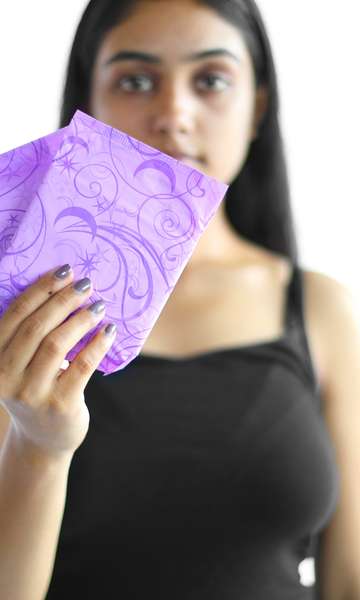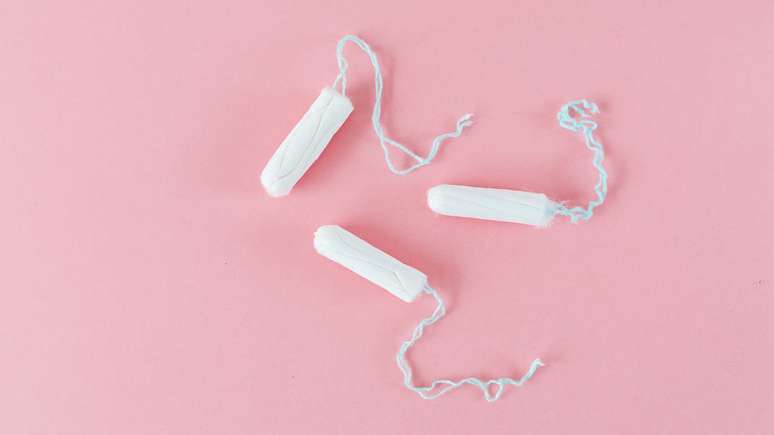Are menstruating people at risk when using the product? Does this discovery make the material harmful? See these and other answers
Scientists of University of California conducted a study that identified more than ten types of metals in sanitary pads. To better understand the risks that menstruating people face, the Einstein Agency Talked to experts. Understand more:
Discovery on swabs
The publication of theEnvironment International‘ showed that the 14 brands of swabs contained 16 types of metals, including arsenic, barium, calcium, cadmium, cobalt, chromium, copper, iron, manganese, mercury, nickel, lead, selenium, strontium, vanadium, and zinc. The only variations were the concentrations and the material.
To achieve this result, the researchers evaluated the products purchased in United StatesIn United Kingdom and in Greece between September 2022 and March 2023. Purchases were focused on popular and best-selling brands in a large online retailer and in physical stores.
And they believe that the substances came into contact with the material in different ways. There is a possibility that the cotton absorbed them through water, air and even soil. On the other hand, they can appear during the procedure, through processes such as pigmentation, bleaching and even antibacterial agents.
Health impacts
As for the health of the person who is menstruating, is he at risk when using the product? According to the authors of the study, contact leads to some consequences. “Even a low-level exposure [ao chumbo] may cause neurobehavioral impacts in adults and children, including a decrease in cognitive functions such as reduced attention, memory and learning ability. In case of exposure to arsenic there are possible repercussions on the functions of the uterus and ovaries, as well as the risk of cardiovascular disease.”they say.
The gynecologist of Albert Einstein Israelite Hospital, Renata Bonaccorso Lamegoin turn, warned that the presence of heavy metals could indeed be a concern. Metal toxicity has the potential to cause neurological and cardiac effects, cancer risks, kidney disease and infertility.
And you wonder how the components enter our body. The answer is through the vaginal canal, because, due to the intense vascularization, they are easily absorbed. “To give you an idea, some drugs, normally administered orally, can be prescribed to be used vaginally because they have the same efficacy”he detailed.

Which pad holds menstrual flow the best? Discover the best of 21 products
More evidence
Despite the important discovery, the gynecologist Adriana Campaner told the Einstein Agency that it is not enough to certify that the product is harmful to health. To do this, they need to conduct further studies and use other approaches, such as whether the metals actually reach the bloodstream. “New studies are needed to evaluate the presence of these metals in the blood of users compared to those who do not use sanitary pads”he added.
To verify whether the same is also true for Brazil, a study should also be conducted with Brazilian products. “It is possible that there is absorption, but for now it is not something we can say. Other points also need to be explored, for example whether in addition to the risks for the organism there are also potential risks for the genital area itself.” All this would require a long-term study”he added.
Additionally, it is worth considering possible pesticide contamination. “Because it is very vulnerable to pests, this type of plant fiber ends up being susceptible to the intensive use of pesticides. This reinforces the need for more careful regulation and control of the production chain, as well as encouraging the use of more sustainably treated cotton”concluded Lamego.
Treatment
Another aggravating factor is the way it is used, due to the proliferation of bacteria that accumulate in the blood and cause infections. To avoid this, change the pad every two to six hours, depending on the flow. “Today we have other options, such as cups and vaginal discs. The vast majority are made of silicone and advertising always emphasizes that they are antibacterial. But, just like the pads sold here, we also do not know what the composition of this type of product contains, which highlights the need for further research on this topic.”concluded Lamego.
Source: Terra
Ben Stock is a lifestyle journalist and author at Gossipify. He writes about topics such as health, wellness, travel, food and home decor. He provides practical advice and inspiration to improve well-being, keeps readers up to date with latest lifestyle news and trends, known for his engaging writing style, in-depth analysis and unique perspectives.








